Nourishing Naturally: Choosing Non-Toxic Alternatives to Plastic Baby Bottles
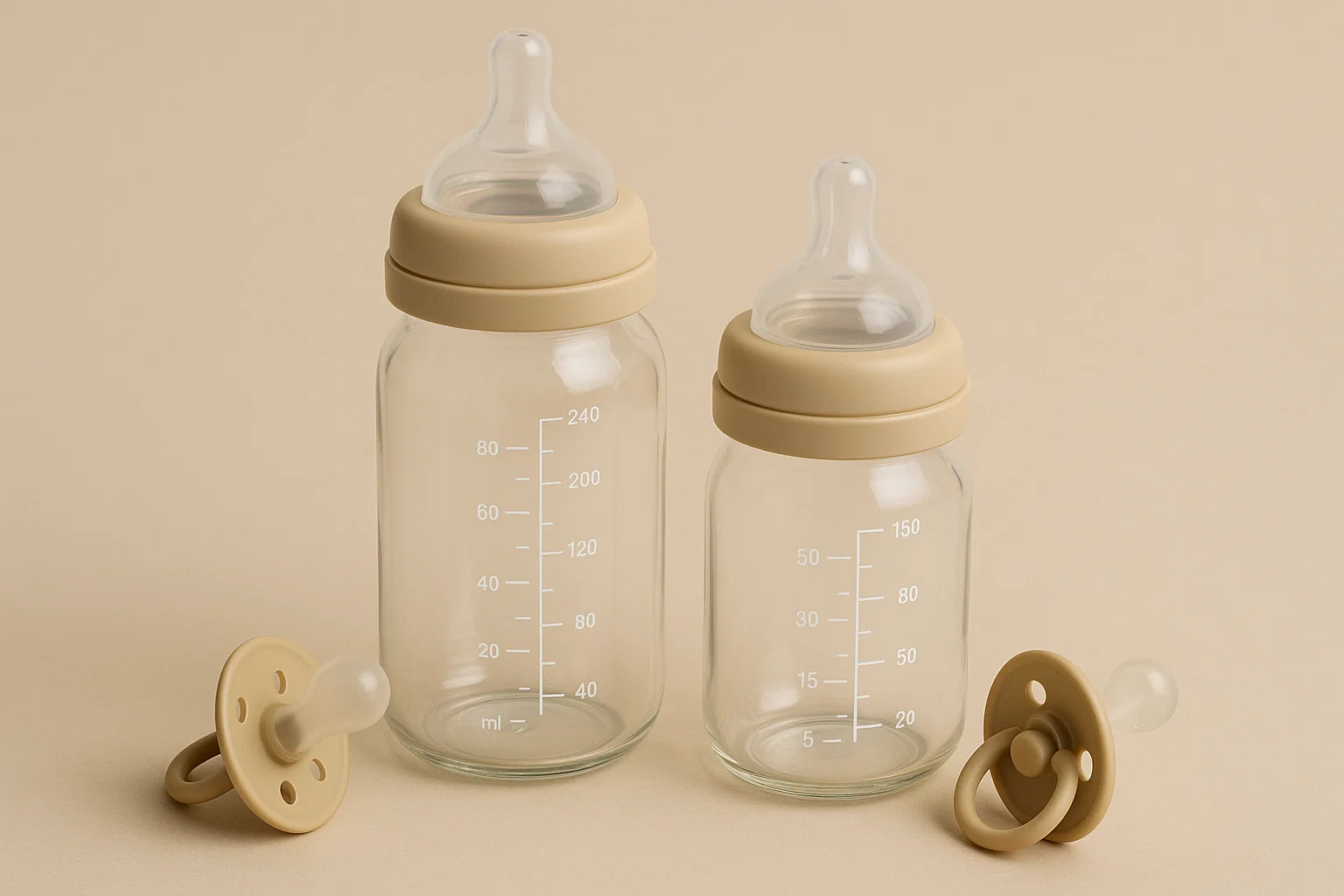
The arrival of a new baby brings immense joy and a deep-seated desire to provide the safest and healthiest environment for their growth and development. Feeding, a fundamental aspect of infant care, often involves the use of baby bottles. While plastic bottles have become a ubiquitous choice due to their lightweight nature and perceived durability, concerns have been raised regarding the potential for leaching of chemicals, particularly with certain types of plastic. For environmentally conscious parents seeking safer and more sustainable options for their little ones, a range of non-toxic alternatives exists, offering peace of mind and a healthier start to life.
The concerns surrounding plastic baby bottles often center on the presence of bisphenol A (BPA) and other bisphenols, as well as phthalates, which are chemicals that have been linked to potential health issues, particularly in infants and young children. While many plastic bottles are now marketed as BPA-free, concerns remain about the safety of replacement chemicals and the potential for leaching, especially when bottles are heated or repeatedly washed. Furthermore, the sheer volume of plastic baby bottles used throughout infancy and toddlerhood contributes significantly to plastic waste, adding to landfill accumulation and persisting in the environment for centuries. Recognizing these health and environmental implications, many parents are seeking safer and more sustainable alternatives for feeding their babies.
Fortunately, a variety of excellent non-toxic materials offer viable replacements for plastic baby bottles. By choosing glass bottles, opting for durable and temperature-regulating stainless steel bottles, or selecting BPA-free silicone bottles, parents can significantly reduce the potential for chemical exposure while minimizing waste and embracing more sustainable feeding practices. These alternatives offer a safer and often longer-lasting solution for nourishing infants and toddlers.
Pure Nourishment: Exploring Non-Toxic Baby Bottle Alternatives
Moving beyond the potential concerns of plastic opens up a world of safer and more sustainable feeding options for your baby:
Glass Bottles: The Pure and Chemical-Free Choice
Glass baby bottles offer a naturally inert and chemical-free feeding option. Made from durable borosilicate glass, these bottles are resistant to thermal shock and won't leach harmful substances into breast milk or formula, even when heated. Glass is also easy to clean and sterilize thoroughly. While potentially heavier and more breakable than plastic, glass bottles offer a pure and safe way to feed your baby. Brands like Philips Avent Glass and Lifefactory offer high-quality glass baby bottles in various sizes and designs, often with protective silicone sleeves for added grip and durability.
Stainless Steel Bottles: Durable and Temperature-Regulating
Stainless steel baby bottles provide a robust, lightweight, and non-toxic alternative to plastic. Made from food-grade stainless steel, these bottles are incredibly durable, resistant to bacteria, and won't leach chemicals. Stainless steel also offers excellent temperature regulation, keeping liquids warm or cool for longer periods without the need for separate warmers or coolers. While you cannot see the liquid level directly, many stainless steel bottles have measurement markings on the inside or come with external sleeves with measurement indicators. Pura is a leading brand in stainless steel baby bottles, offering modular systems that can adapt as your child grows.
BPA-Free Silicone Bottles: Soft and Easy-to-Grip Option
BPA-free silicone baby bottles offer a softer and more flexible alternative to traditional plastic. Made from medical-grade silicone, these bottles are free from BPA, phthalates, and other harmful chemicals. Silicone is also naturally resistant to bacteria and easy to clean. Some silicone bottles have a collapsible design that can help reduce air intake and colic. While still a synthetic material, choosing BPA-free silicone is a step away from potentially harmful chemicals found in some plastics.
Embracing Mindful Feeding: Choosing What's Best for Your Baby and the Planet
Choosing non-toxic baby bottles is a significant step towards a healthier start for your child and a more sustainable future. Consider these additional mindful feeding practices:
- Reusable Bottle Sleeves: Use reusable sleeves made from silicone or fabric to protect glass bottles and provide a better grip for all bottle types.
- Natural Bottle Brushes: Opt for bottle brushes made with wooden handles and natural bristles instead of plastic ones.
- Sterilization Options: Explore non-plastic sterilization methods like boiling or using steam sterilizers made from safer materials.
By consciously choosing non-toxic baby bottles and embracing other sustainable feeding practices, you can nourish your baby safely and responsibly, minimizing their exposure to harmful chemicals and reducing plastic waste from infancy.
Related Blogs
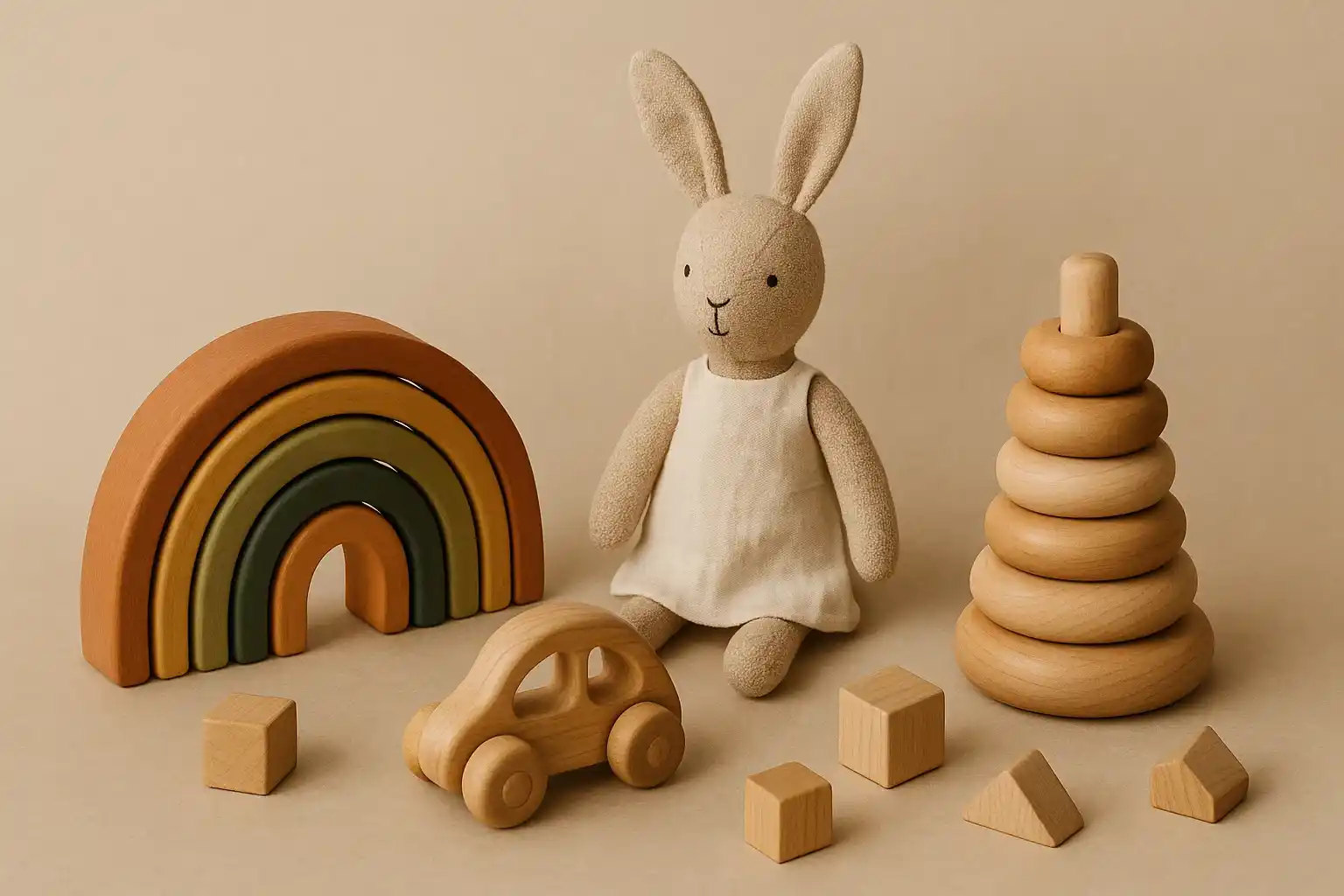
Unplug and Imagine: Choosing Battery-Free Toys for Engaging and Sustainable Playtime
Foster imagination and save energy with manual musical toys, story books, and nature play.
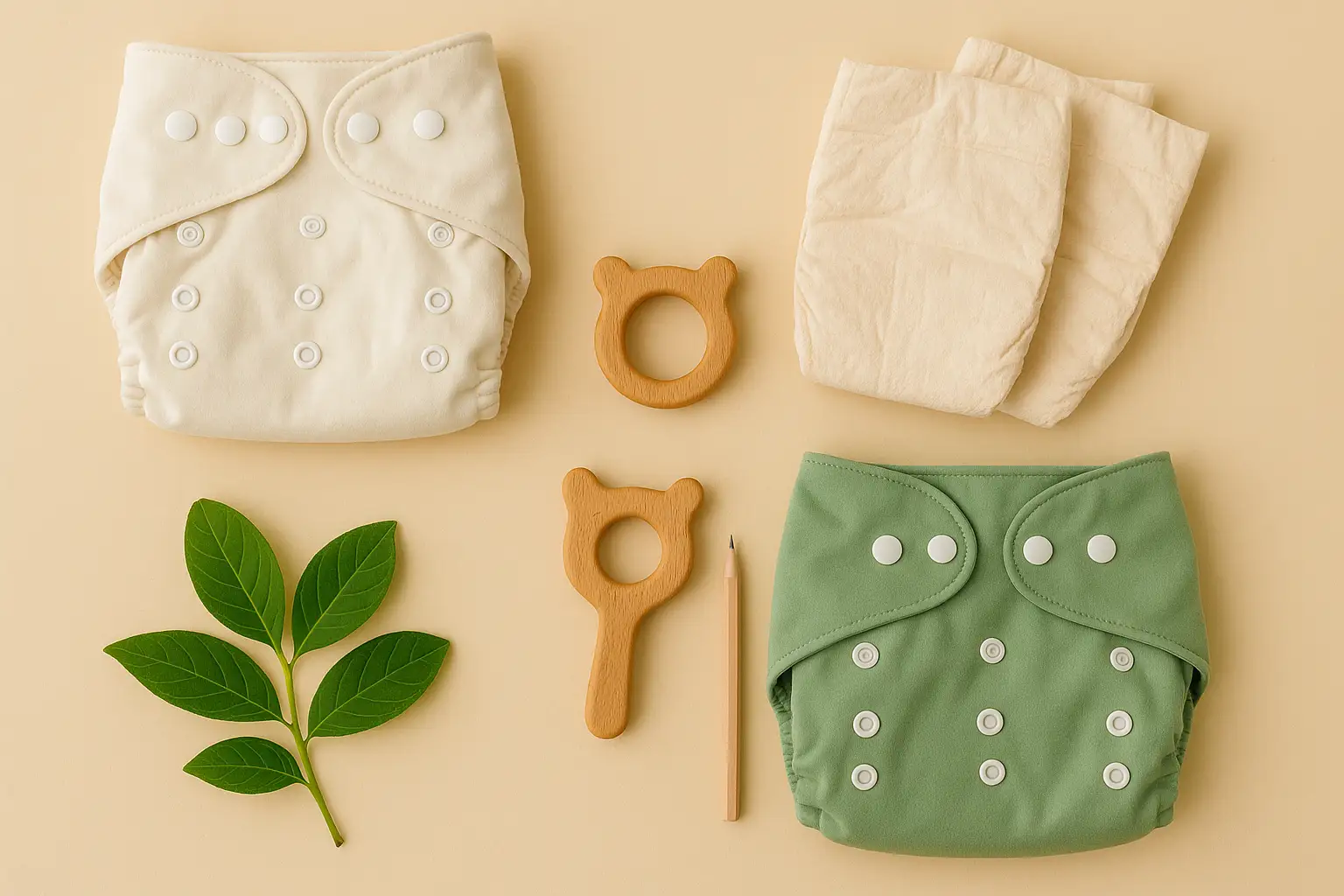
The Great Diaper Debate: Navigating Cloth vs. Eco-Disposables for a Sustainable Start
Comparison of sustainable alternatives to help you make informed decisions.
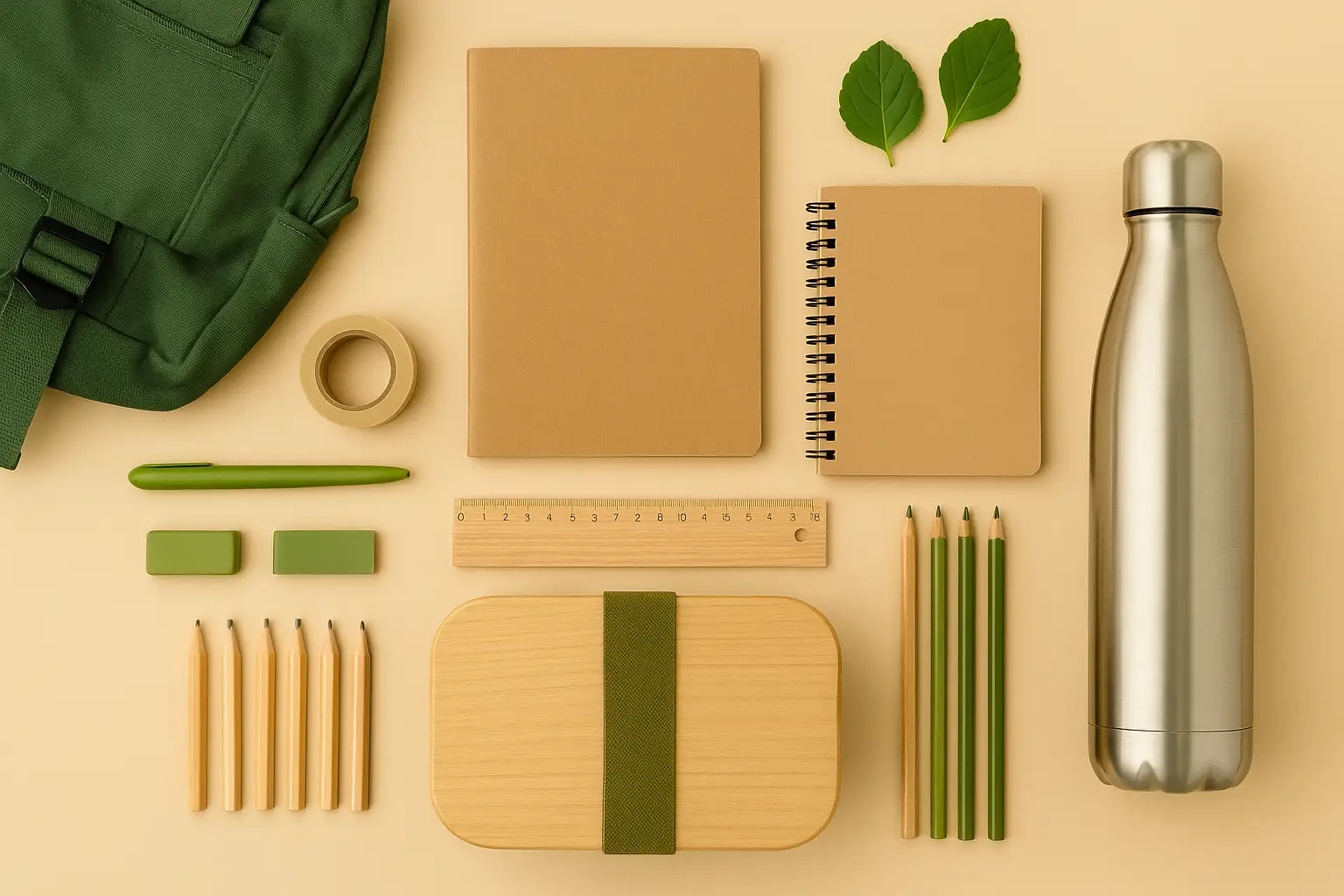
Equipping Young Minds, Protecting Our Planet: Sustainable School Supplies Kit
Insights on creating a sustainable school supplies kit in a sustainable way.
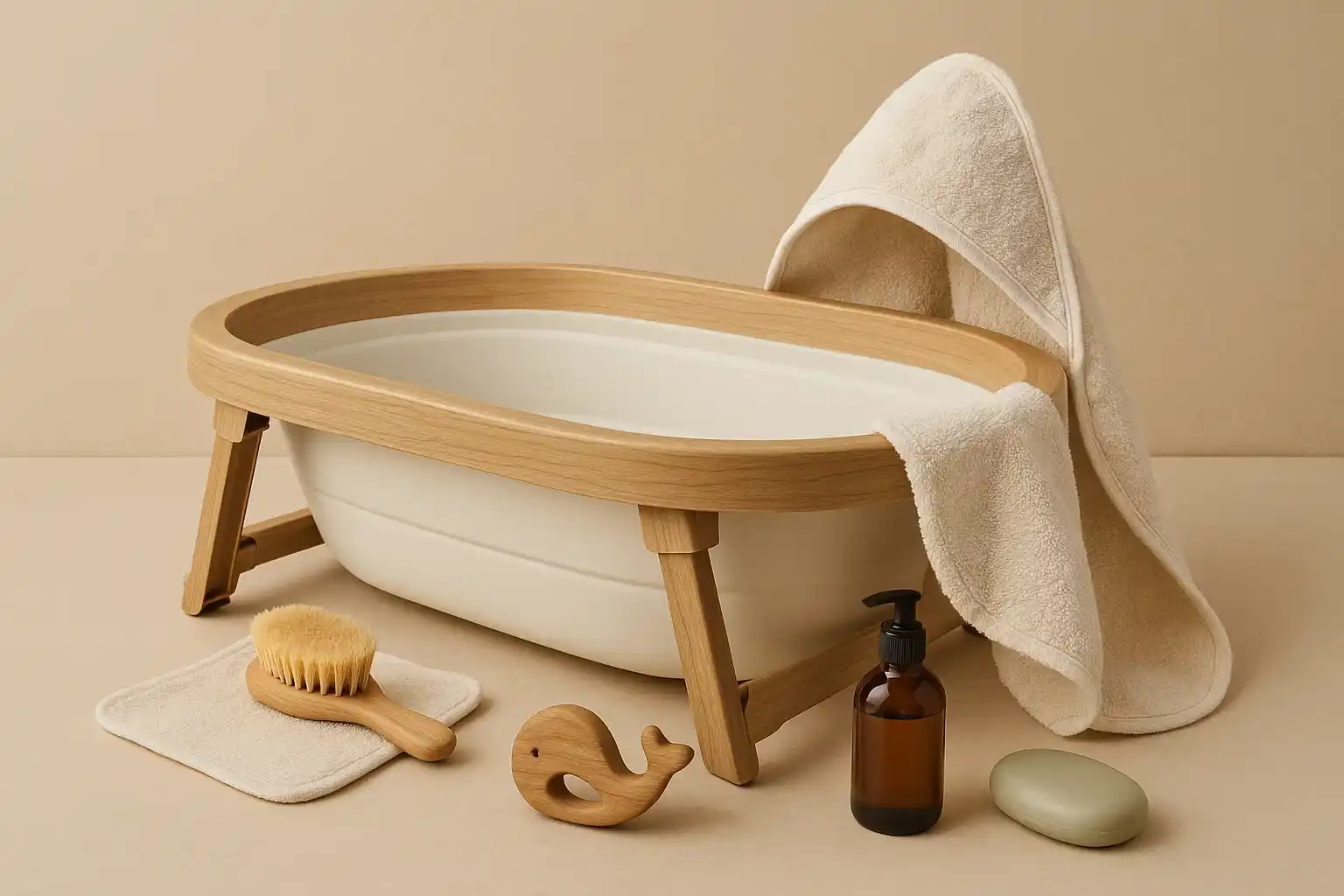
Bathtime, Simplified: Eco-Friendly Alternatives to Bulky Plastic Baby Baths
Reduce manufacturing impact and clutter with sink bath seats, inflatable tubs, or repurposed containers.
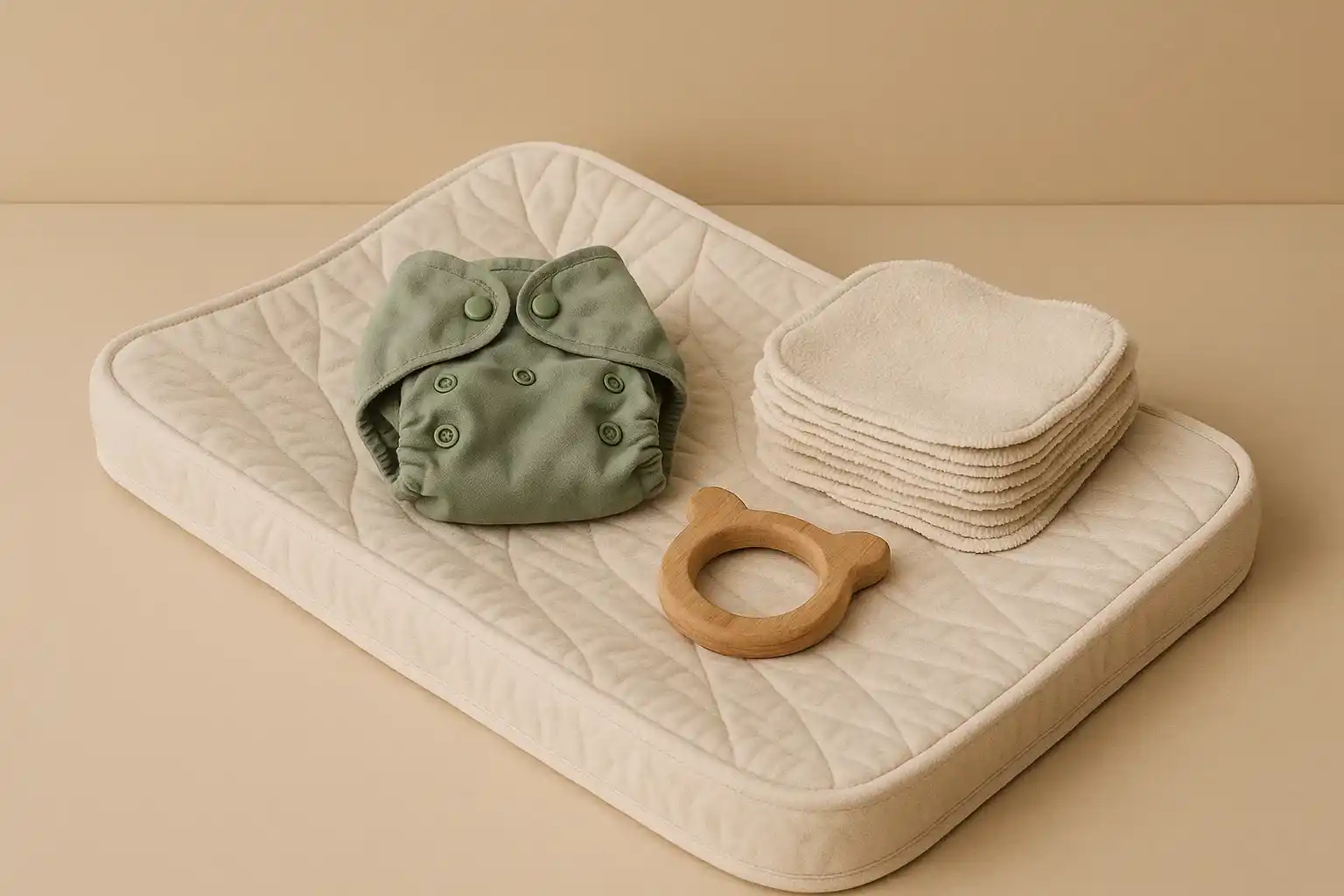
A Gentle Foundation: Choosing Eco-Friendly and Non-Toxic Changing Mats for Your Baby
Opt for organic cotton, cork-based, or recycled textile changing mats free from PVC and phthalates.
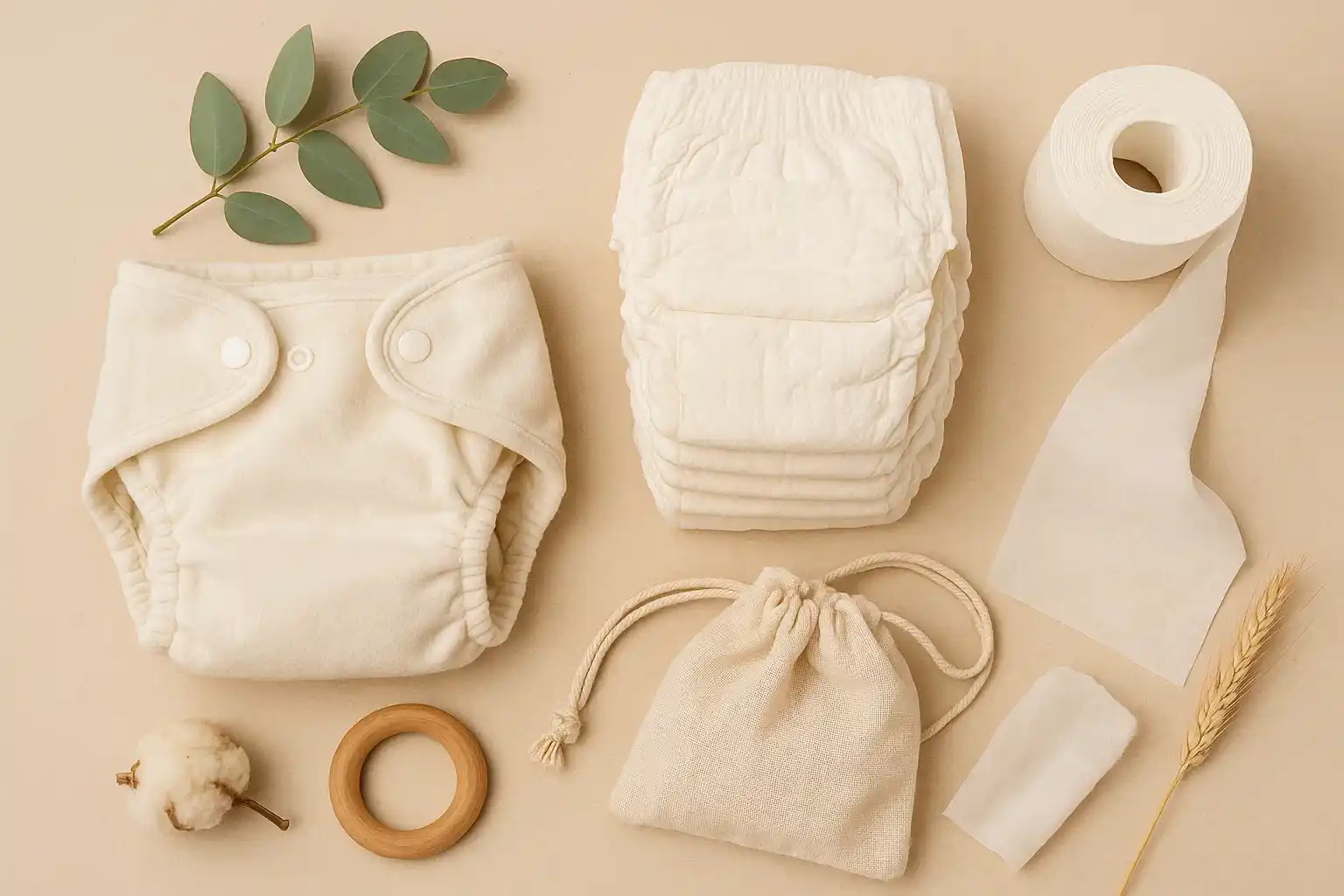
Diapering with Intention: Exploring Eco-Friendly Alternatives to Disposable Diapers
Cut down drastically on landfill waste with cloth, compostable, or hybrid diaper systems.
Stay in the Loop
Get tips and insights tailored to your interests — no spam, just sustainability.